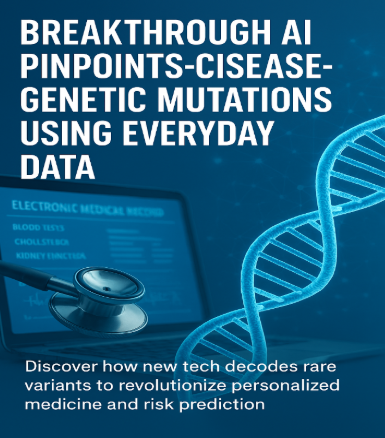Researchers at the Icahn School of Medicine at Mount Sinai have developed an advanced AI system that predicts the likelihood of rare genetic mutations leading to disease. Traditionally, genetic testing often leaves patients and doctors uncertain about the real-world impact of these mutations. To address this, the Mount Sinai team combined machine learning with millions of electronic health records and standard lab tests—such as cholesterol levels, blood counts, and kidney function—to create “ML penetrance” scores. These scores assess genetic risk on a spectrum rather than a binary scale.“Some variants once thought dangerous showed little real-world impact, while others previously labeled uncertain revealed strong disease links,” the researchers noted. This approach offers a more nuanced and data-driven understanding of genetic penetrance, helping clarify which mutations are truly harmful. The findings, published in the August 28 issue of Science, mark a significant step toward personalized medicine, using everyday clinical data to unlock insights into rare DNA variants.
Breakthrough AI Pinpoints Disease-Causing Genetic Mutations Using Everyday Data.






